.webp)
To choose the best accounting software for small businesses, assess your business needs and budget. Compare features, user reviews, and pricing plans.
Selecting the best accounting software is crucial for managing your small business finances efficiently. The ideal software should do tasks like invoicing, expense tracking, and financial reporting. Consider software that integrates with existing tools and offers scalability as your business grows.
User-friendly interfaces and strong customer support are essential for minimizing learning curves and troubleshooting issues. Security features, such as data encryption and regular backups, ensure your financial data remains protected. Lastly, read user reviews and take advantage of free trials to make an informed decision.
By focusing on these key aspects, you can find the right software that meets your business needs and supports growth.
Choosing the best accounting software is crucial for small businesses. It helps keep finances in check. This software should be fast-paced with your financial tasks, saving time and effort. It enables business owners to focus on growth rather than tedious accounting.
Automation: Saves time and reduces errors by automating routine tasks like data entry and invoicing.
Financial Reporting: Generates accurate financial reports for better decision-making.
Compliance: Ensures adherence to tax laws and financial regulations.
Cost Efficiency: Lowers operational costs by streamlining processes.
Data Security: Protects sensitive financial information with encryption and secure access controls.
Real-Time Data: Provides up-to-date financial information for immediate analysis.
Integration: Seamlessly connects with other business systems like CRM and inventory management.
Accessibility: Allows access to financial data from anywhere via cloud-based solutions.
User-Friendly Interface: Simplifies accounting for non-accountants with intuitive design.
Scalability: Adapts to the growing needs of a business, accommodating increased transaction volumes and users.
Choosing the best accounting software for small business can be a game-changer. It improves your finances, saves you time, and helps you make better business decisions. But with so many options out there, how do you pick the right one? Let's break it down.
Before diving into software features, take a step back and think about what your business really needs.
Customization: Can the software be tailored to your industry and specific needs?
Scalability: Will it grow with your business? Ensure it can handle more transactions and users as you expand.
Not all accounting software is created equal. Make sure it covers these core areas:
Chart of Accounts: A customizable chart to categorize all transactions.
Journals: Detailed record-keeping for all financial transactions.
Expense Tracking: Easy monitoring and categorizing of expenses.
Income Tracking: Efficient management of income from various sources.
Your accounting management software should do more than just basic bookkeeping.
Invoicing: Automated invoice generation and tracking.
Payroll Management: Handle salaries and tax deductions with ease.
Tax Preparation: Simplifies tax filing and ensures compliance.
Multi-Currency Support: Essential for international business dealings.
Integrations: Seamlessly connect with CRM, inventory management, and e-commerce platforms.
You don't want to spend weeks learning how to use your new software.
Ease of Use: Look for intuitive interfaces and easy navigation.
Training and Support: Check if the provider offers helpful training resources and responsive customer support.
Balancing cost and value is key.
Budget: Determine what you're willing to spend.
Value for Money: Ensure the features justify the cost. Consider both initial and ongoing expenses.
Your financial data is sensitive. Keep it safe.
Data Security: Look for robust encryption and secure access controls.
Backup and Recovery: Automatic backups and easy recovery options are a must.
Both have their pros and cons.
Cloud-Based: Flexible, scalable, and accessible from anywhere. Great for remote work.
On-Premise: More control over data and security but higher upfront costs and maintenance.
Learn from others’ experiences.
Customer Reviews: See what other small business owners have to say.
Expert Recommendations: Consider advice from industry experts and professional accountants.
Try before you buy.
Free Trials: Test the software’s features and usability.
User Feedback: Get your team’s input to ensure it meets their needs.
Stay connected on the go.
Mobile Apps: Ensure the software offers mobile applications.
Flexibility: Access your accounting software from anywhere, anytime.
By keeping these key factors in mind, you’ll be well on your way to choosing the best accounting software for your small business. This decision will not only optimize your financial management but also set up your business accounting management for long-term success.
Deciding on the best accounting software in Bangladesh for your small business is crucial. This tool will manage your finances, track expenses, and aid in compliance. Below, we outline steps to help you make the best choice.
Evaluate each software's strengths and weaknesses. Consider cost, ease of use, and available features. Create a table to compare options:
| Software | Pros | Cons |
Software A |
|
|
| Software B |
|
|
| Software C |
|
|
You might not properly know how accounting software works. Consult with an accountant or financial advisor. They can offer insights based on your business needs. Ask about:
Software compatibility with your existing systems
Ease of transitioning data
Potential long-term benefits
Professional advice ensures you make an informed decision. It helps avoid costly mistakes in the future.
Biznify Accounting Management Software simplifies financial management for small businesses with essential features like a customizable chart of accounts for accurate categorization, detailed journals for precise record-keeping, comprehensive expense tracking with receipt storage and reporting, and efficient income tracking that integrates with invoicing tools. Biznify features ensure organized, transparent, and accurate financial operations.
Feel free to contact us and ask for the demo version of the software.
Biznify is one of the simplest cloud-based accounting software for small businesses. It offers user-friendly features and integrates with various apps.
The cash-based accounting system is ideal for small businesses. It's simple to use and tracks income and expenses easily.
The cash-based method is often best for small businesses. It’s simple, tracks actual cash flow, and offers tax advantages.
Most accountants use software like Biznify, QuickBooks, and FreshBooks. These tools help manage finances, payroll, and taxes efficiently.
Choosing the best accounting software is crucial for small business success. Consider features, pricing, and ease of use. Research thoroughly and read reviews. Make sure it integrates well with your existing tools. The best software will save time and improve financial accuracy.
Your business deserves the best support available.
Get a guided product demo tailored to your business needs. No assumptions. No generic walkthroughs. Just real use cases.
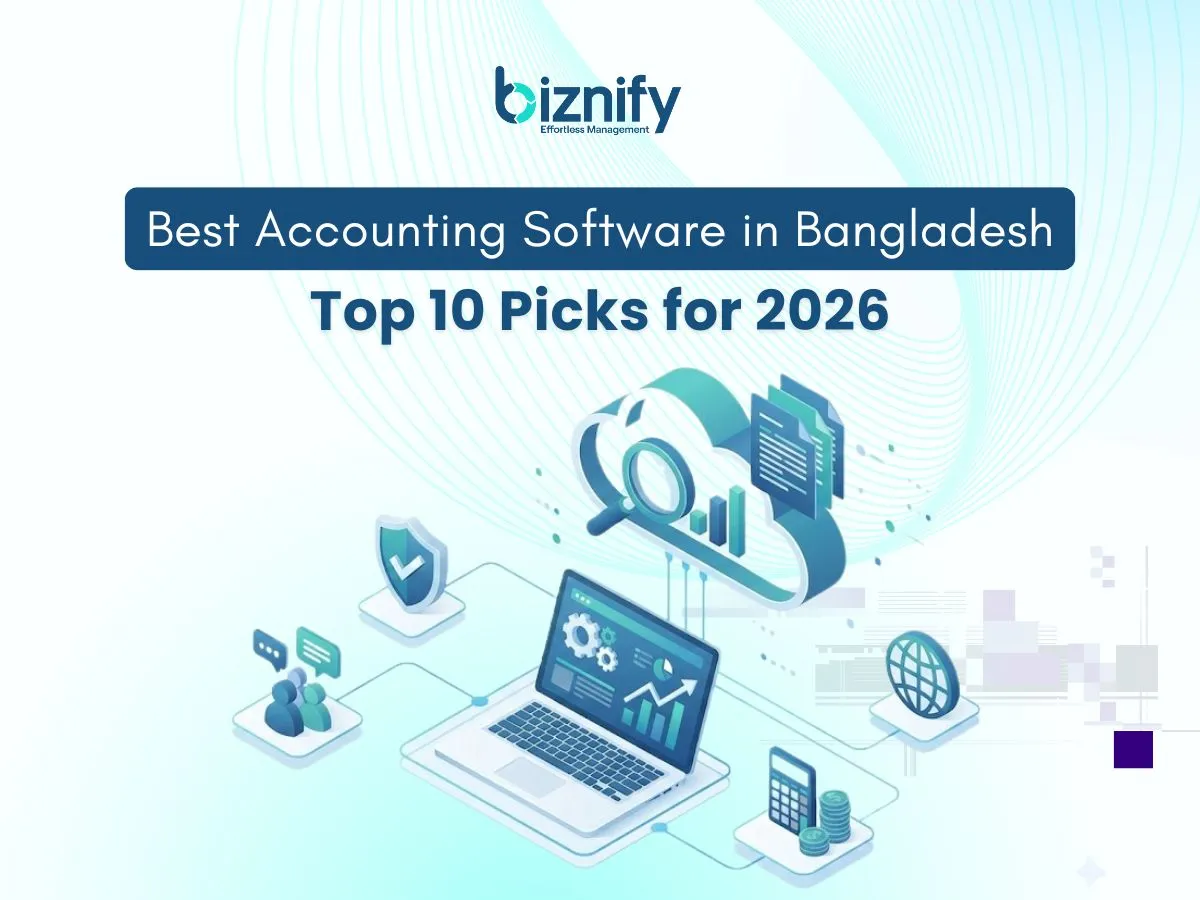
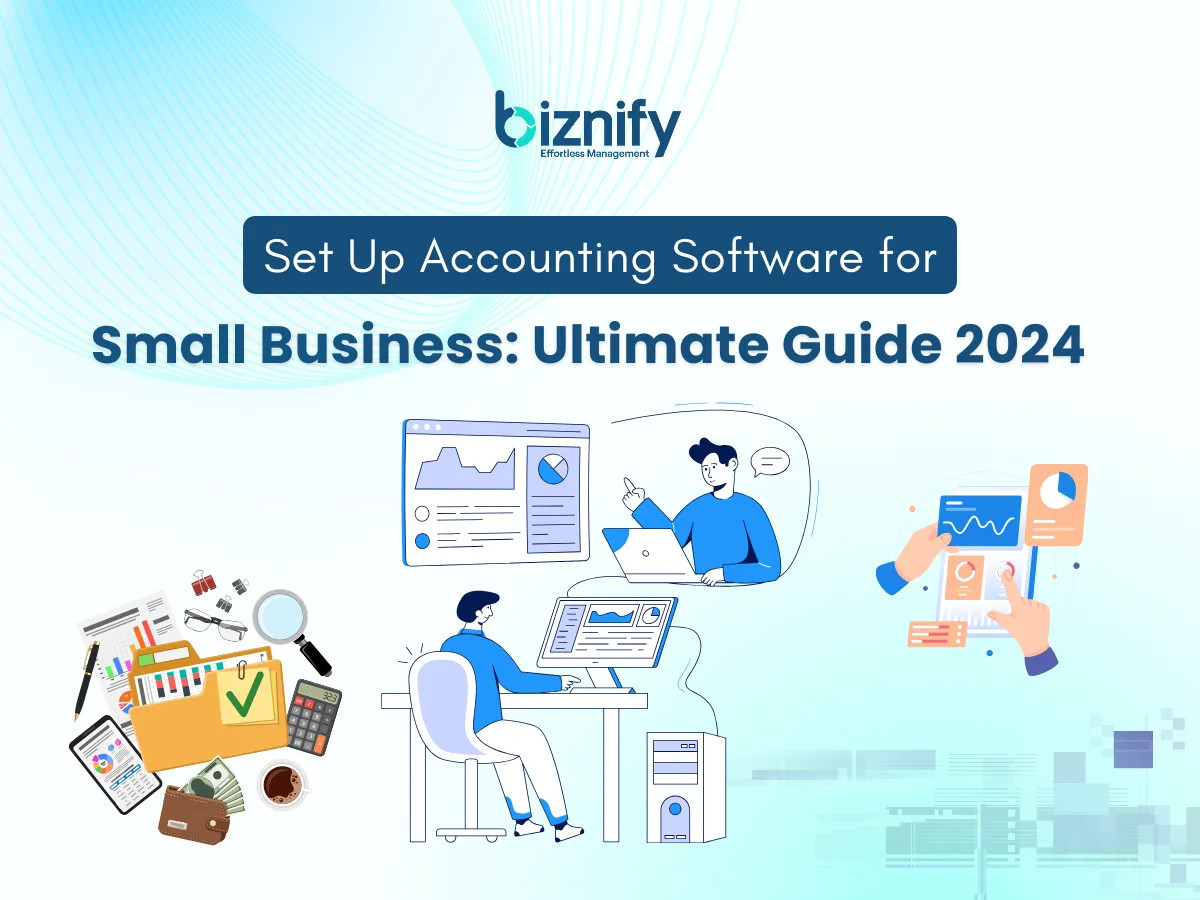
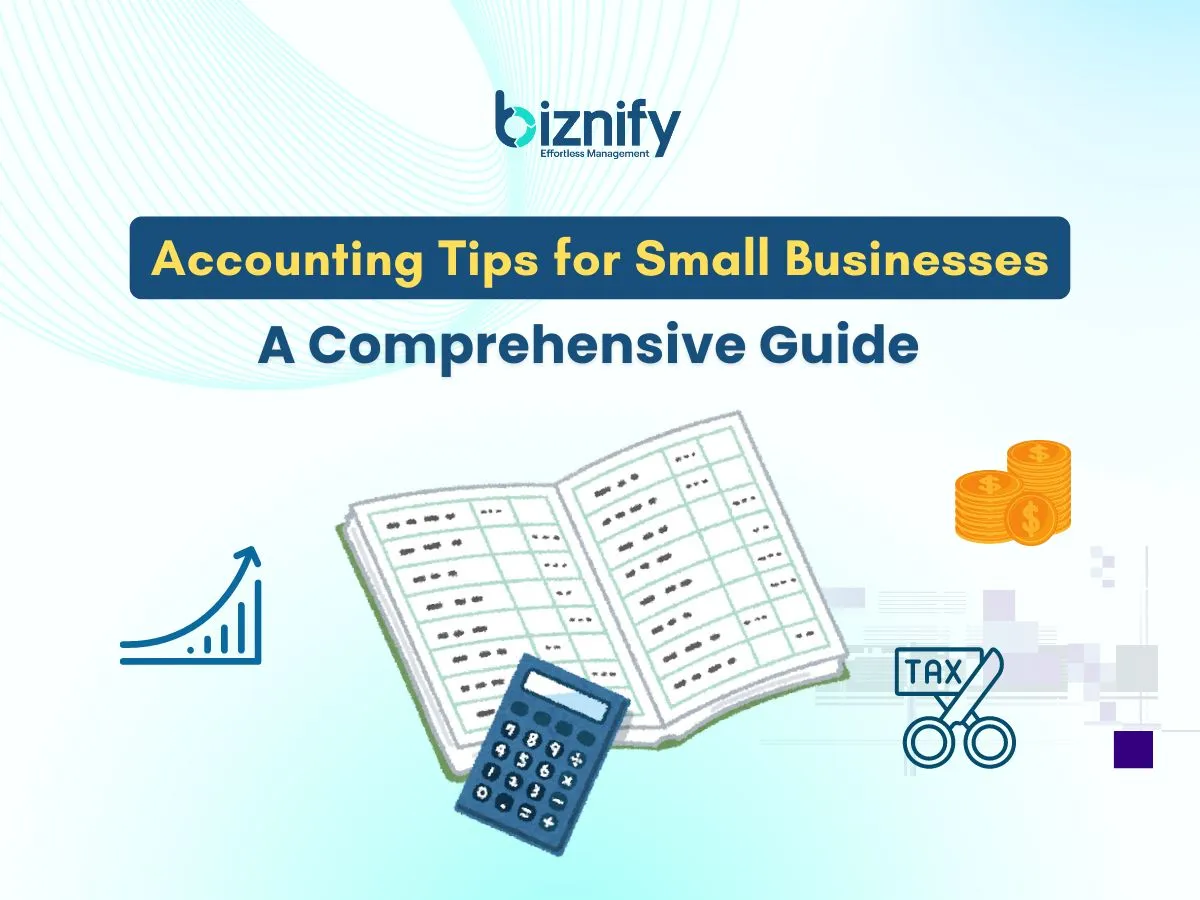
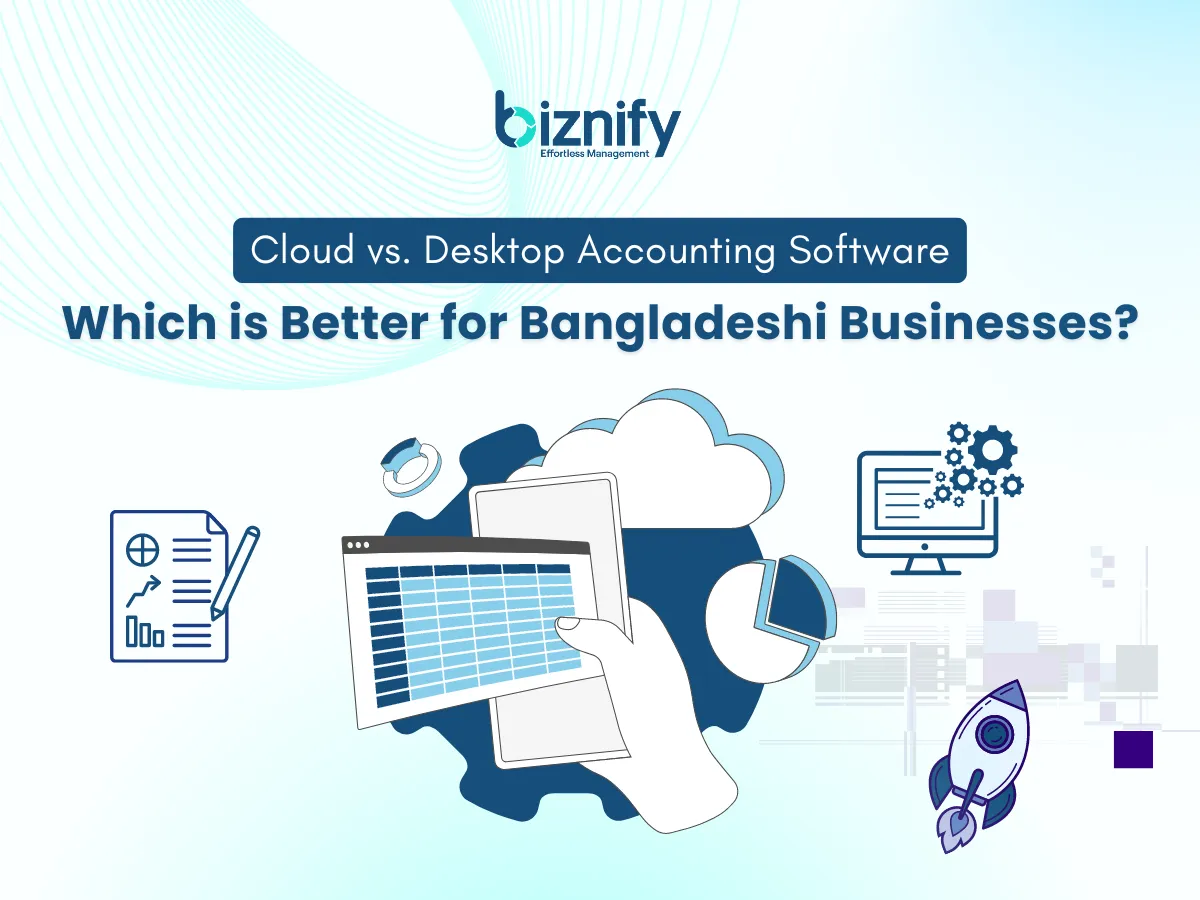
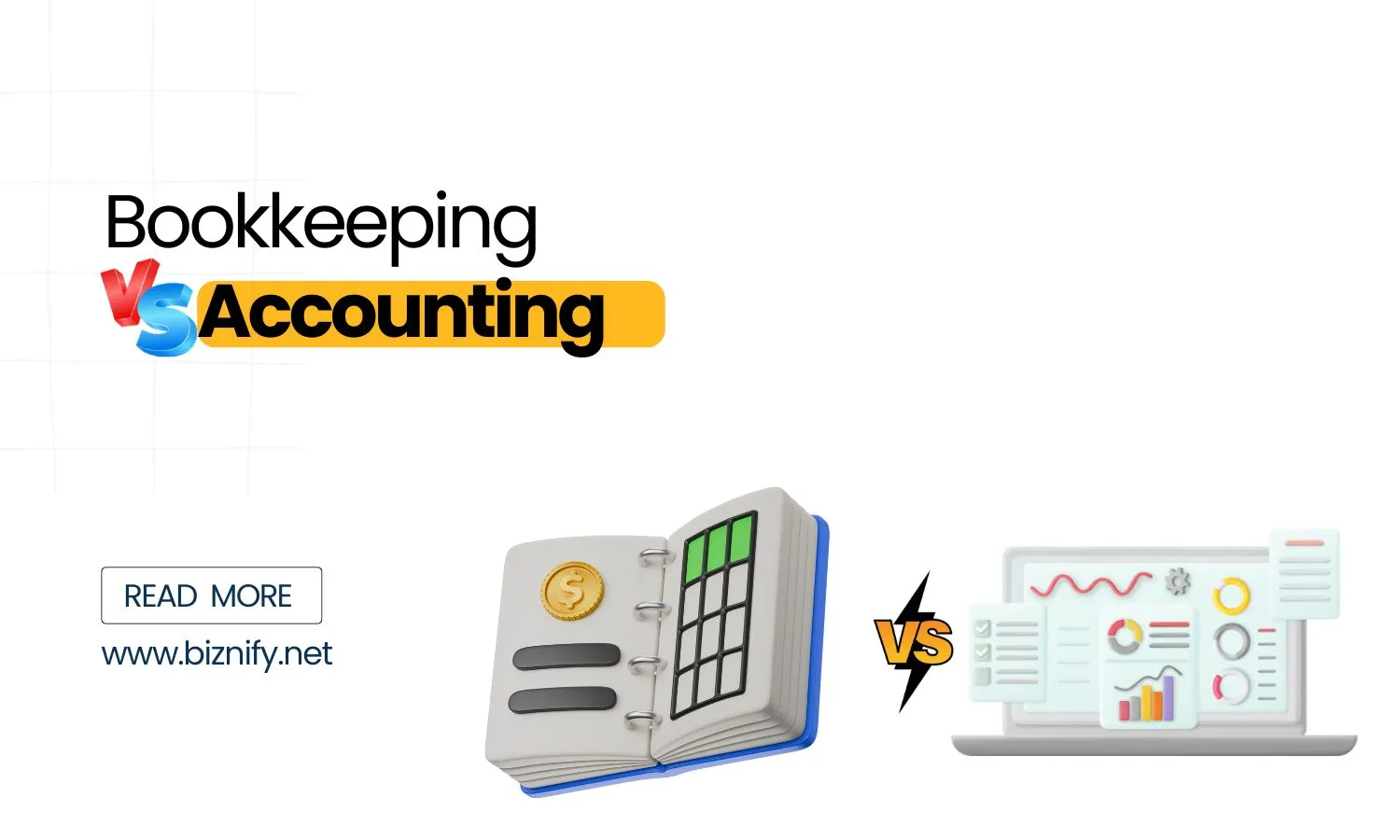
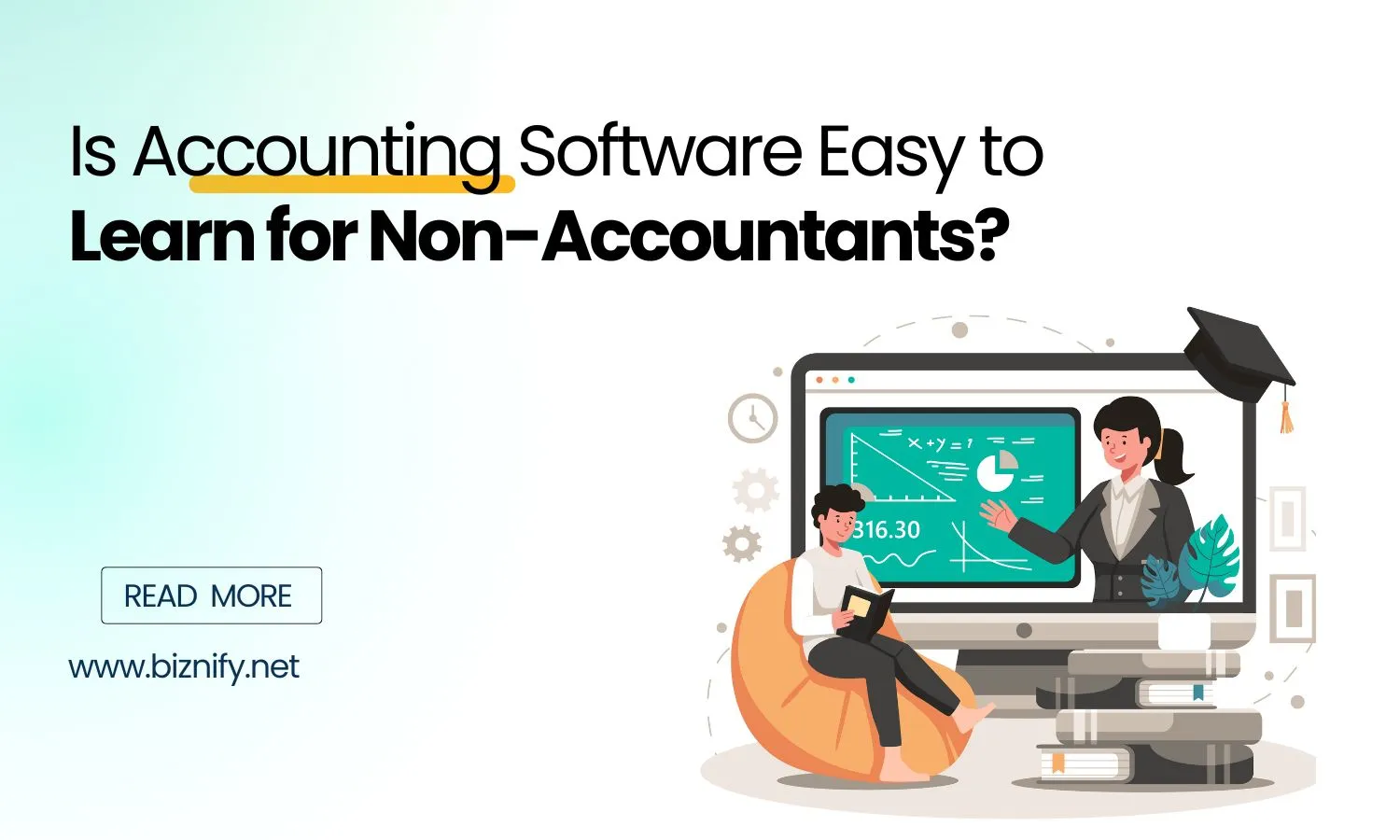
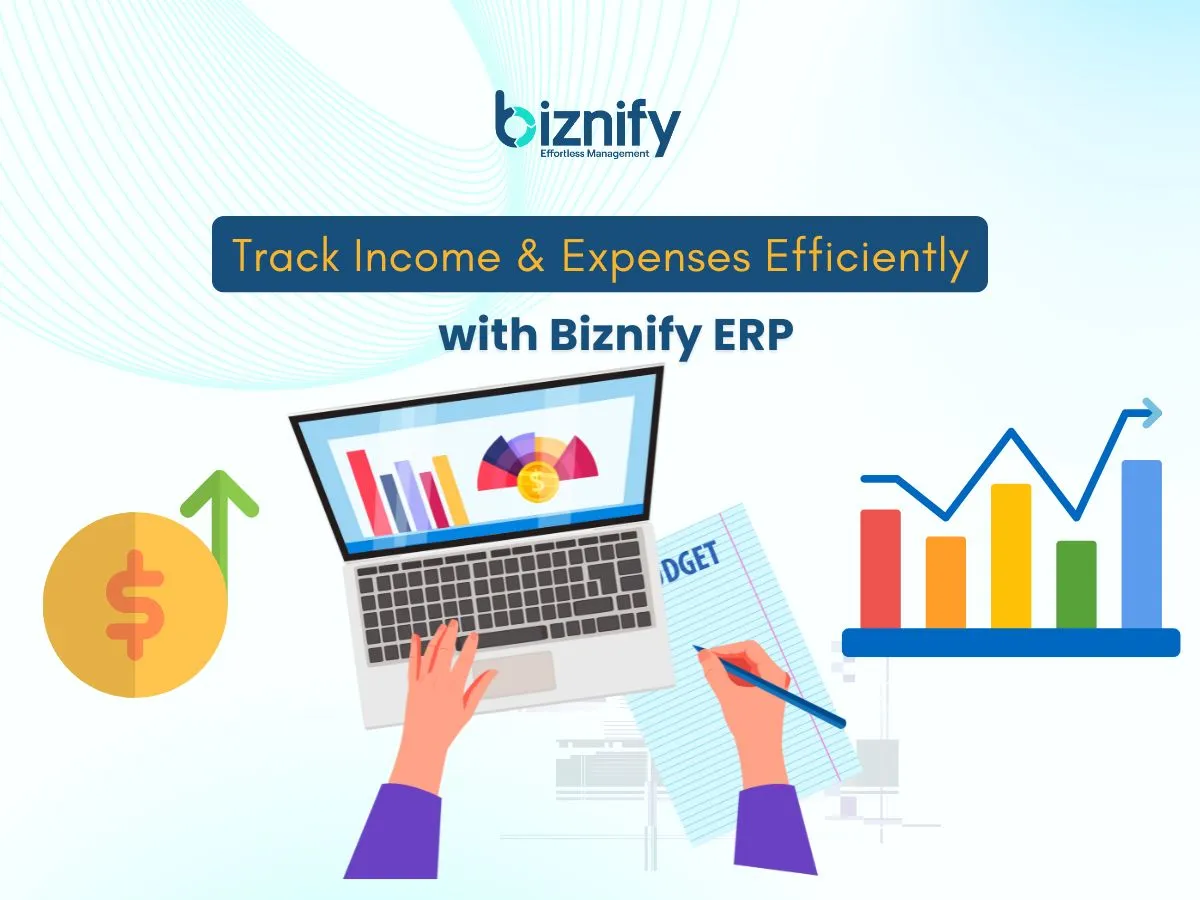
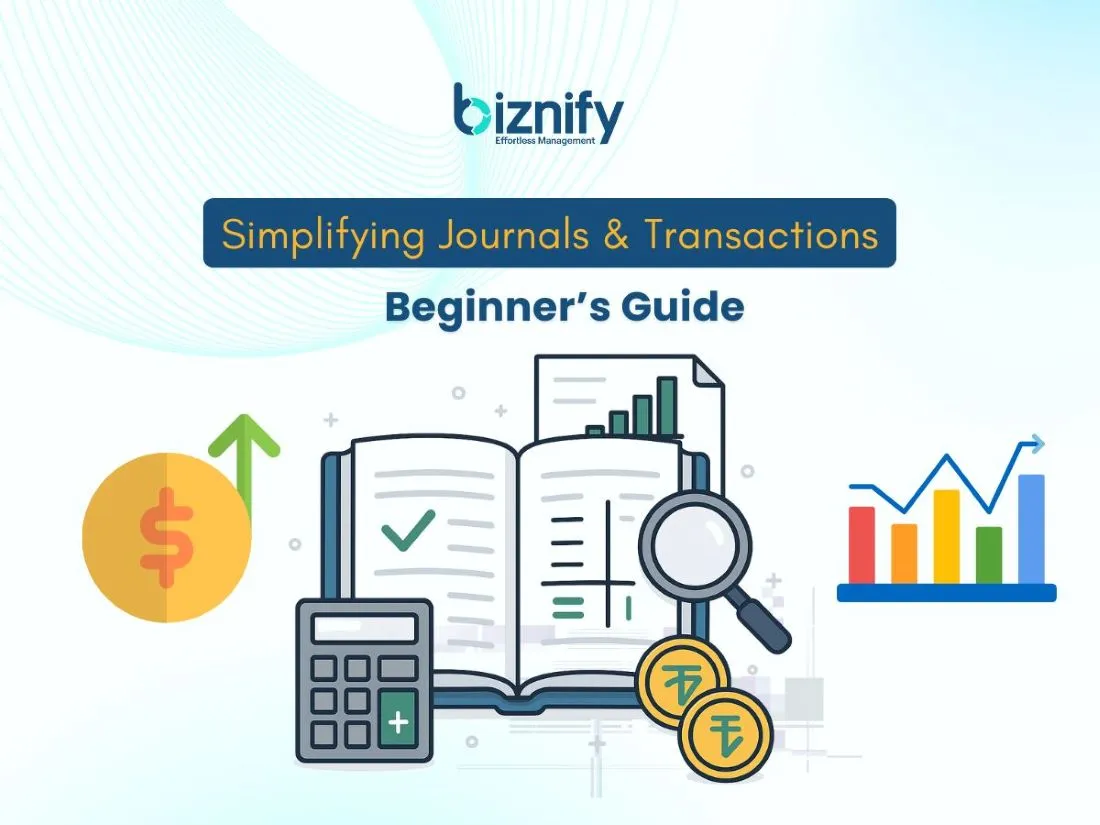
Just exploring ERP or unsure which modules you need? The Biznify team’s here with straight answers.